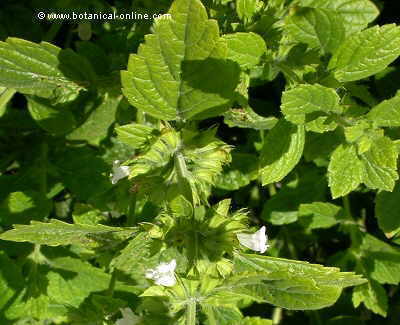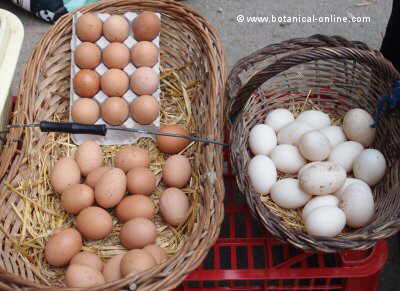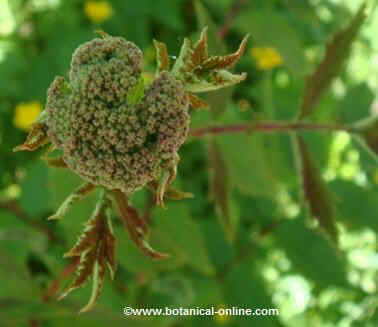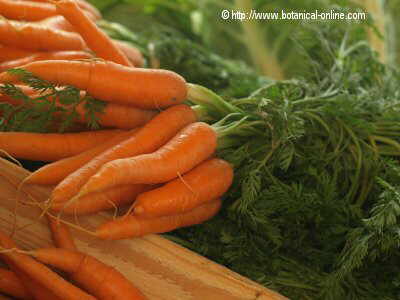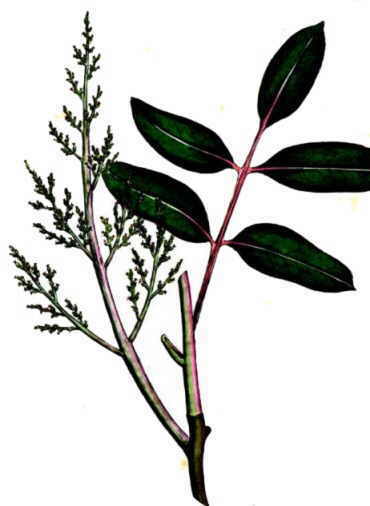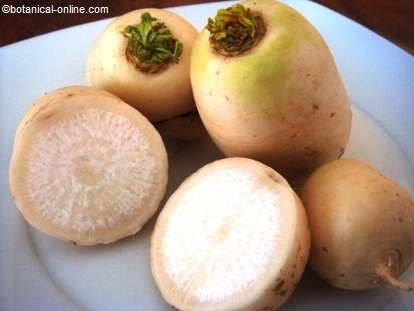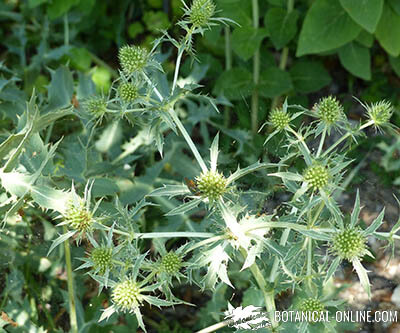Contents
- 1 Food for Parkinson’s disease
- 1.1 Relation between diet and Parkinson’s disease
- 1.2 Healthy diet for Parkinson’s
- 1.3 Interactions between food and levodopa
- 1.4 Antioxidant foods and Parkinson’s
- 1.5 Neuroprotective foods and infusions
- 1.6 Foods suitable for the diet of Parkinson’s patients
- 1.7 Food not suitable for the diet of Parkinson’s patients
- 1.8 Foods that are difficult to digest or handle
- 1.9 Foods that produce flatulence
- 1.10 How can nutrition benefit in Parkinson’s?
- 1.11 DIET FOR PARKINSON’S DISEASE
- 1.12 What foods should be eaten by Parkinson’s patients?
Food for Parkinson’s disease
Relation between diet and Parkinson’s disease
Proper nutrition can be very useful for people with Parkinson’s disease. More and more scientific evidence is emerging that confirms the power of healthy foods for the well-being of the organism and the improvement or brake of neurodegenerative and inflammatory diseases, such as Parkinson’s.
In addition, in Parkinson’s it is interesting to take into account a whole series of recommendations related to the absorption and side effects of the medication.

Parkinson’s has no cure, but through a healthy diet and lifestyle can improve the health prognosis of affected people
There are three important topics in the field of diet therapy for Parkinson’s:
- First of all, we must take a healthy diet rich in antioxidants and avoid those factors that increase free radicals, which are mainly smoking, alcohol, stress and sedentary lifestyle.
- In the second place, in recent years it has been confirmed – and this is a very solid scientific evidence – that the medication for Parkinson’s disease produces a decrease in vitamins B12 and B9 (folic acid). Therefore, the diet for Parkinson’s should increase the contribution of foods rich in these two vitamins (Food rich in vitamin B12). It has also been observed that, in these patients, it is common to have lower levels of iron.
- Finally, one of the most innovative aspects is the issue of the intestinal microbiota or flora and its possible relationship with Parkinson’s. A good composition of the intestinal flora is necessary for the integrity of the intestine and prevents hyperpermeability and a whole series of neuroimmune and neuroinflammatory disorders. Therefore, the diet for Parkinson’s will enhance those foods that are most beneficial for the intestinal flora.
Healthy diet for Parkinson’s
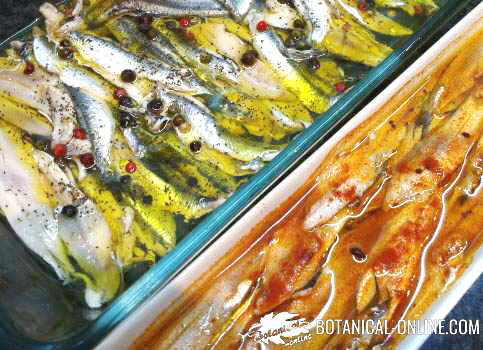
Homemade sardines and anchovies in vinegar are very advisable for people with Parkinson’s because they have many proteins, omega 3 (anti-inflammatory), iron, folic acid and vitamin B12
Generally speaking, people with Parkinson’s should eat a healthy diet, enhancing some foods. Among the most beneficial, the following stand out:
- Potato, sweet potato, oats and rice: They provide energy of easy digestion and have a lot of starch, with beneficial properties for the intestines (prebiotic effect). Legumes (lentils, chickpeas, tofu, etc.) also provide energy and are also very rich in protein, fiber, minerals and vitamins. Excellent in the diet: hummus, lentil salad, chickpeas with spinach, lentils with vegetables, rice with vegetables, roasted sweet potato, potato omelette, baked potatoes, etc.
- Fatty fish and shellfish: Very interesting your consumption! Sardines, anchovies, mackerel, … They are excellent sources of protein and foods rich in omega 3 (EPA and DHA) and also have a lot of folic acid, iron and calcium (especially if you eat small fish with spines). Seafood, like mussels, is also interesting for its enormous richness in vitamin B12 (same as small-sized fatty fish).
- Egg: It is the richest food in lecithin and a very good source of protein. Excellent in any diet, especially in the case of vegetarianism.
- Fruits, vegetables and greens: Carrots, spinach, broccoli, green beans, peppers, squash, asparagus, mangoes, avocados, etc. are highly recommended. The more color, the better.
- Healthy fats: virgin olive oil, nuts, almonds, hazelnuts, sunflower seeds, etc.
- Aromatic herbs and spices: Especially turmeric, pepper, rosemary, thyme, and abundant aromatic herbs, in general.
- Drinks and infusions: Water, water with lemon, green tea. If it costs to swallow liquids (dysphagia) or there are problems of dry mouth: agar agar gelatin of orange juice and ginger.
Interactions between food and levodopa
Due to the treatment with levodopa or L-Dopa (may have the name of Madopar, Sinemet or Stalevo), all people with Parkinson’s should follow the following recommendation:
- Do not take levodopa immediately with meals. Take the medicine with a glass of water, at least with 2 hours of fasting, and wait 30 minutes – 1 hour before eating any food.
- Avoid eating lots of protein-rich foods during the day. It is better to concentrate the protein intake at night, at dinner time.
Antioxidant foods and Parkinson’s
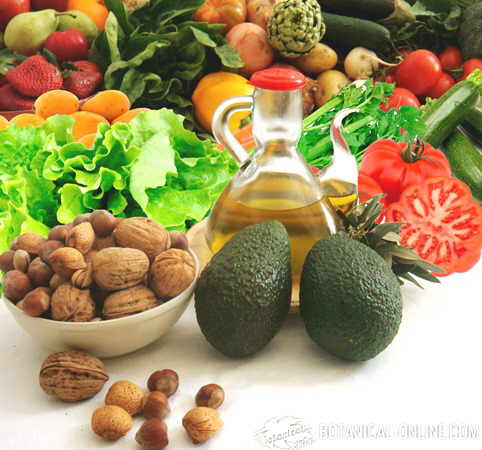
Nuts and nuts, sunflower and flaxseeds, virgin olive oil, avocado and aromatic herbs are great antioxidants. We can introduce these foods habitually into the diet to make it more anti-inflammatory.
A diet rich in antioxidant foods reduces the negative influence of free radicals, not only in the cells of the brain responsible for the production of dopamine, but to the whole organism in general, protecting it against the pernicious effects of oxidation and toxins ingested .
Foods rich in vitamin E are powerful antioxidants, which can help protect brain cells. It is better to consume them toasted or with previous soaking to make them more digestive.
Among the vegetable sources of vitamin E, we have vegetable fats (Wheat germ oil, Olive oil or unrefined sunflower oil). Other foods are rich in this vitamin, but they are not too good because they are difficult to digest, such as sunflower seeds, hazelnuts, toasted almonds.
Other plant sources have lesser amounts, but the are adequate,such as asparagus. Mangoes and avocados also have it in smaller amount.
Neuroprotective foods and infusions
Especially interesting are those foods and infusions with neuroprotective properties. These components are able to cross the blood-brain barrier, penetrate the brain, and prevent the damage of free radicals in neurons
This same diet will help to reduce memory loss, coordination, and to avoid depression or dementia, will help to delay the stiffness of the muscles, improve movement and reduce tremors. On the other hand it will facilitate the reduction of the side effects that usually produce the drugs that are prescribed for this disease.
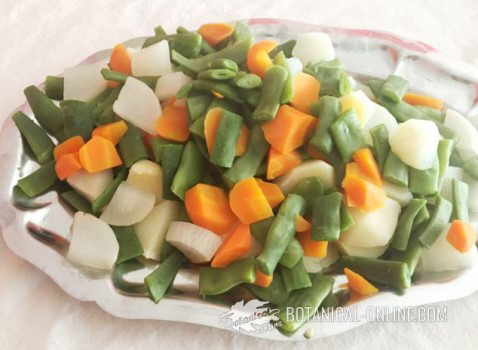
Eating a diet rich in vegetables is beneficial for health.
Foods suitable for the diet of Parkinson’s patients
- Foods for constipation: People with Parkinson’s usually suffer from constipation problems. A diet that helps promote intestinal transit will be very helpful in the diet of people with Parkinson’s disease. Among all we can mention the following:
- Vegetables: They are very rich in fibers and have a great wealth of minerals and vitamins. Its high content in water, together with the fibers, increases the volume of the feces, which stimulates the intestine and favors the evacuation.
- Whole grains: Whole wheat bread (wheat bread or other cereals or mixed multigrain breads) are ideal to combat constipation. Its high fiber content produces an increase in intestinal peristalsis and a greater ease in the evacuation of feces. On the other hand, they are very rich in minerals essential for health.
- Fruits: They provide a lot of fiber, that part of the vegetables that our digestive system can not digest, but that is so important for the expulsion of fecal matter. But ingesting plenty of fiber is not only a useful way to prevent constipation.
- Foods rich in Vitamin C: Like vitamin E, its antioxidant activity helps protect brain cells in general, including those responsible for the production of dopamine. Citruses are very rich in it (oranges, lemons, grapefruits, etc.).Other plants that contain this vitamin are: spinach, bananas, melons, watermelons, pineapples, pears, papayas, barley, garlic, blackberries, celery, strawberries, raspberries, bilberries, grape, figs, chicories, potatoes, avocado, cherimoyas, mangoes, pomegranates, coconuts, etc.
Food not suitable for the diet of Parkinson’s patients
People with Parkinson’s should not eat a lot of protein along with the medication, because they inhibit the absorption of levodopa, one of the main drugs used for this disease
It is recommended to take the medication on an empty stomach or with a little fruit, and, the rest of the day, take a normal diet in protein (between 0.8 and 1 gr per kilo that weighs the person). However, these diets must be controlled by the doctor or dietitian.
Foods that are difficult to digest or handle
People with Parkinson’s disease have difficulty swallowing food. Other times, the strong tremors suffered by these patients make it difficult to bring the food with the spoon to the mouth.
People with Parkinson’s should avoid those foods that are difficult to swallow because of their dryness, such as cookies or nuts. It is also not advisable to give them food such as soups, custards, or other preparations if their current state has large tremors as they end by throwing it on them.
Foods that produce flatulence
People with Parkinson’s usually suffer from flatulence problems that get worse when they eat flatulent foods. For this reason they should take into account the following:
- Legumes are discouraged in Parkinson’s diet. (peas, beans, soybeans and dried beans or beans)
- Equally other foods rich in fiber that could be adequate to prevent constipation that affects these patients should be avoided because they usually produce many gases, like all types of cabbages, cabbages of Brussels, or because for some people they are flatulent, like radishes, onions, carrots, or apples.
- Keep in mind that drinking sparkling beverages, such as lemonade, beer, soda water, etc means increasing the level of gases that are responsible for flatulence.
- Some drinks, rich in caffeine, such as coffee, tea or colas, cause flatulence due to irritation of the colon.
- Some sweeteners, such as sorbitol, are responsible for producing a large volume of gases. These sweeteners are sugar substitutes and appear in many sweet drinks or in chewing gums or chewing gum. The person with a tendency to suffer from flatulence should reduce the intake of this type of product and check if their level of gas decreases. (Consult diet for flatulence for more information on the subject)
How can nutrition benefit in Parkinson’s?
It must be taken into account that an adequate diet must be provided to avoid obesity that contributes to worsen the general condition of these patients.
Authors such as Dr. Jean Seignalet, in his book Food, the 3rd medicine, point out the importance for the mind of adopting a diet that is capable of “cleaning” the neurons. According to this doctor, the success of this type of diet will depend on the percentage of dead neurons. If the disease is not very advanced, if there is still a high percentage of “living” neuronal cells, the success of a proper diet is very great.
DIET FOR PARKINSON’S DISEASE
What foods should be eaten by Parkinson’s patients?
Many experts believe that adequate food can be very useful for people suffering from Parkinson’s.
A diet rich in antioxidants may help reduce the negative influence of free radicals not only in brain cells responsible for dopamine production, but to the whole brain. Adequate food protects it against the damaging effects of oxidation and the body’s own ingested toxins.
![]() More information on Parkinson’s disease.
More information on Parkinson’s disease.

